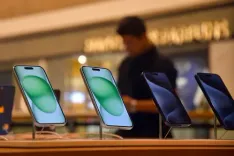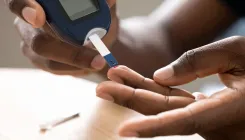Can addiction to PUBG lead to spinal damage and paralysis?

Synopsis
Key Takeaways
- Prolonged gaming can cause spinal issues.
- Social isolation is a key risk factor.
- Awareness and parental monitoring are crucial.
- Early intervention can prevent serious outcomes.
- Gaming addiction is a growing public health concern.
New Delhi, May 2 (NationPress) Are you finding yourself engrossed in online games like PUBG? Prolonged gaming obsession can result in spinal deformities and even paralysis, according to medical professionals who treated a 19-year-old boy suffering from this issue.
The young man spent nearly a year confined to his room, indulging in excessive gaming for up to 12 hours daily. This behavior led to a gradual decline in his enthusiasm for physical activity and school, ultimately resulting in social isolation.
The increasing reliance on online gaming culminated in an abnormal curvature of his spine, impacting his ability to walk and urinate.
“This extreme gaming led to a significant kypho-scoliotic spinal deformity,” stated a representative from the Indian Spinal Injuries Centre (ISIC) in New Delhi.
The medical team reported that the boy developed a severe kypho-scoliotic deformity at the D11 and D12 vertebrae levels due to undiagnosed spinal tuberculosis—an infectious ailment that went unnoticed due to his prolonged immobility and social isolation.
This condition resulted in abscess formation and pus accumulation, which exerted pressure on his spinal cord, leading to a decline in neurological function. Fortunately, he underwent a successful complex spinal correction surgery, allowing him to regain mobility and bladder control.
“This was a complex case due to the combined challenges of advanced spinal TB and the psychosocial effects of gaming addiction. The spine had undergone significant deformity, compressing the cord and posing the risk of permanent disability,” explained Dr. Vikas Tandon, Chief of Spine Services at ISIC.
“Luckily, we managed to realign the spine, relieve pressure on the cord, and enable his mobility. The patient showed promising signs of neurological recovery within days post-surgery,” he added.
Dr. Tandon highlighted a concerning trend of musculoskeletal issues in adolescents, attributing it to prolonged screen time and sedentary lifestyles associated with gaming.
“This case is not solely about spinal TB—it underscores a rising public health concern where physical and mental well-being are intricately linked. Excessive gaming, poor posture, and social isolation can create a perfect storm for late diagnoses and serious consequences. Awareness, parental oversight, and early intervention are crucial to prevent such situations,” he advised.









